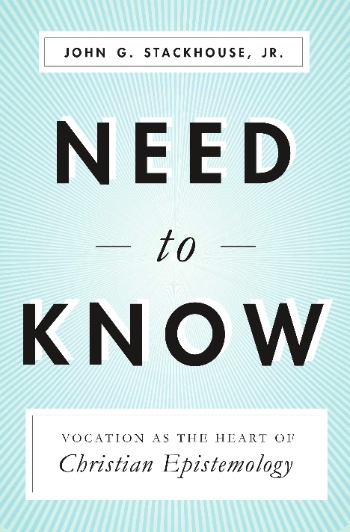 How to think, how to grieve, how to suffer . . . in this article I will look at several local books that fall, broadly, within the realm of ‘Christian living.’ In part one, I looked at Bible-related books, and in part two, fiction, poetry and the arts. One final article will look at missions and international issues.
How to think, how to grieve, how to suffer . . . in this article I will look at several local books that fall, broadly, within the realm of ‘Christian living.’ In part one, I looked at Bible-related books, and in part two, fiction, poetry and the arts. One final article will look at missions and international issues.
These are not reviews – I don’t have most of the books – but are simply meant to introduce the books; many of them would make good Christmas presents.
Need to Know offers a comprehensive, coherent and clear model of responsible Christian thinking. Grounded in the best of the Christian theological tradition while being attentive to a surprising range of thinkers in the history of philosophy, natural science, social science and culture, the book sets out a scheme for drawing together experience, tradition, scholarship, art and the Bible into a portable, practical and yet theoretically profound system of thinking about thinking.
Its fundamental idea is as simple as it is startling: Since God calls human beings to do certain things in the world, God can be relied upon to supply the knowledge necessary for human beings to do those things. The classic Christian concept of vocation, then, supplies both the impetus and the assurance that the faithful Christian can trust God to guide his or her thinking – on a ‘need to know’ basis.
If you think Need to Know might be for you, John’s four-part OUPblog series on Christian epistemology should let you know one way or the other. The topics are The Butterfly and the Matrix, Certainty and Authority, Approaching Peak Skepticism and Radical Faith Answers Radical Doubt.
Another good bet is an article adapted from Need to Know in Books and Culture.
You could also check out this Cardus interview from 2012; it helps to clarify his concerns for clear thinking. This portion is particularly relevant:
I am also learning – much more belatedly than I should have – just how hard it is for us to truly understand an idea that is significantly different from what we currently think.
Having just congratulated myself shamelessly for being so plain in my writing, the fact remains that lots of people – and not just hostile or lazy people – do have trouble understanding me at first blush, and I have trouble understanding them. The potential slippage between what I think is a message both clear and cogent and what you understand me to be saying is much greater than I have truly internalized – even though I have been a preacher since I was 16, a published writer since my early twenties, and a university lecturer since I was 24.
I’m currently writing a book on epistemology and I want to make this point as clearly (!) as I can: It is often hard work, and humble work, to submit oneself attentively to an unfamiliar message, to let it keep its shape in my mind, rather than my immediately pressing it into my own categories. And we very, very often don’t get it all right – as everyone who has been married more than two weeks knows.
Sandy Oshiro Rosen: Bare: The Misplaced Art of Grieving and Dancing
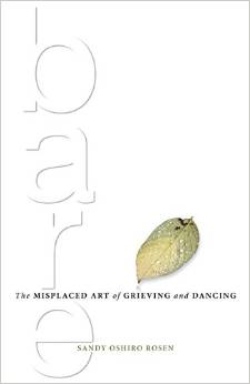 “I realized that in North America, we are a culture that doesn’t grieve (well) – we don’t know how – and so we’ve got people who are kind of stuck in chronic pain, chronic illness, chronic depression because of an inability to grieve.”
“I realized that in North America, we are a culture that doesn’t grieve (well) – we don’t know how – and so we’ve got people who are kind of stuck in chronic pain, chronic illness, chronic depression because of an inability to grieve.”
Such is the contention of Sandy Rosen, a dance studio director and author. In Bare: The Misplaced Art of Grieving and Dancing, she “not only offers a passionate and stirring commentary on everyday casualties, balancing stories of personal loss with professional perspectives on the grieving process, but also brings a unique approach to the subject by adding an undercurrent of the body-and-soul-relieving effects of dance. She teaches us that the often awkward process of grief is both natural and critical.”
Burnaby author and photographer Marja Bergen has written a new book that she believes is unique in offering comfort and hope to people – and especially Christians – struggling with mood disorders and other mental health challenges. . . .
Reflections for Our Highs and Lows contains 28 scripture-based devotionals culled from those that Bergen has been writing and emailing weekly to almost 300 people since the start of last year.
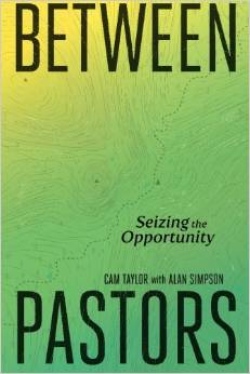 Cam Taylor directs Transitional Leadership Ministries with Outreach Canada, based in Delta. He coaches and trains leaders, works with congregations and organizations in the area of planning, and provides behavioural assessment for church planters and other professionals.
Cam Taylor directs Transitional Leadership Ministries with Outreach Canada, based in Delta. He coaches and trains leaders, works with congregations and organizations in the area of planning, and provides behavioural assessment for church planters and other professionals. Beth Carson: Arne Bryan: Pioneer of Prayer Canada
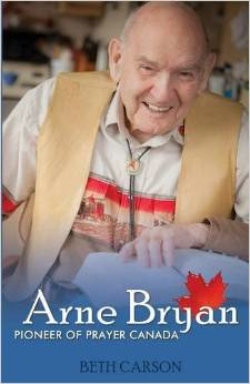 Arne Bryan is the ideal subject of a biography: he’s led an interesting life, he’s made a difference in his community and he’s lived a long time. Beth Carson has now told his story in Pioneer of Prayer Canada.
Arne Bryan is the ideal subject of a biography: he’s led an interesting life, he’s made a difference in his community and he’s lived a long time. Beth Carson has now told his story in Pioneer of Prayer Canada.
From The Light magazine:
Gradually, and with the help of a growing team of supporters and ‘prayer commandos,’ as Arne is fond of calling the faithful, Prayer Canada began establishing other prayer venues and meetings. Today this includes a quarterly prayer breakfast, 275 prayer posts across Canada and regular prayer meetings throughout the day, several days a week at Prayer Canada’s Surrey headquarters.
They are organized and meticulous about praying for Canada, because he believes it is a serious calling that demands a specific response. The organization maintains a detailed prayer handbook with the name, location and position of every government official in every province of Canada, from the Prime Minister down to each member of Parliament and provincial premier. The handbook also contains the names of government leaders in other strategic countries, like the United States, Israel, Great Britain and Australia.
For more, go here.
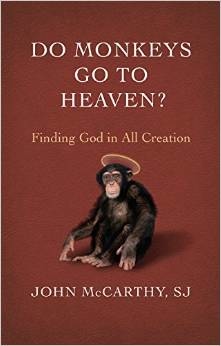 Saying that Fr. John McCarthy “guides us on a reflection on the breathtaking wonder and beauty of God’s presence in creation,” his publisher, Novalis, adds this about his book:
Saying that Fr. John McCarthy “guides us on a reflection on the breathtaking wonder and beauty of God’s presence in creation,” his publisher, Novalis, adds this about his book: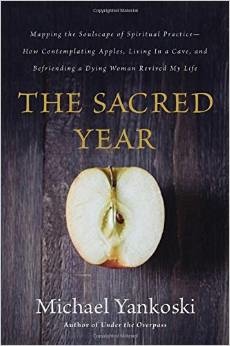 Michael Yankoski is undertaking doctoral studies at the University of Notre Dame – so he’s no longer a local writer. However, he completed his MA at Regent College not too long ago, and part of his book refers to how he and his wife became more closely tied into the Grandview Calvary Baptist Church community (described in Our big step into community, which was excerpted from The Sacred Year, in Leadership Journal).
Michael Yankoski is undertaking doctoral studies at the University of Notre Dame – so he’s no longer a local writer. However, he completed his MA at Regent College not too long ago, and part of his book refers to how he and his wife became more closely tied into the Grandview Calvary Baptist Church community (described in Our big step into community, which was excerpted from The Sacred Year, in Leadership Journal).
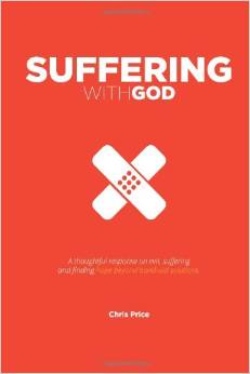

Flynn Enjoyed your succinct summaries of these books….a good way to whet the appetite for spiritual nourishment….